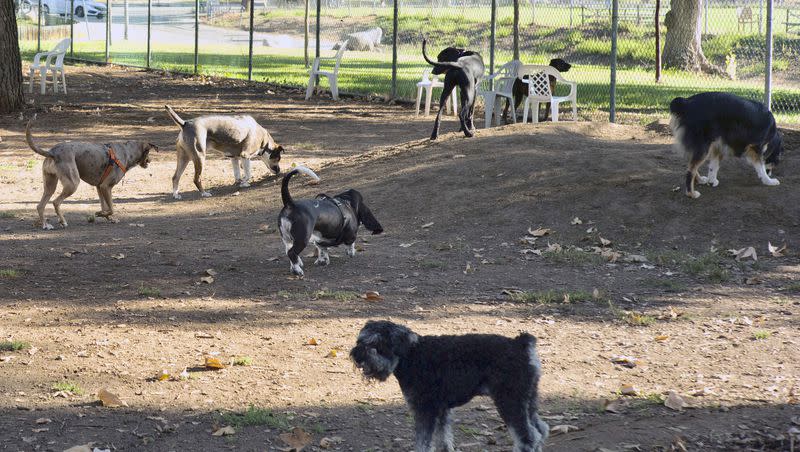Here’s how to protect your dog from the mysterious illness sweeping the U.S.

A mysterious illness is spreading between dogs in some parts of the U.S., causing dogs to be sick for weeks, and it has even killed some dogs.
But Dr. Mike Hutchinson of Animal General told CBS News “the vast majority of dogs are not dying” from the illness but advises dog owners to keep dogs at home or away from other dogs, if possible.
Symptoms include:
Intense coughing that can go on for weeks.
Sneezing.
Lethargy.
Intermittent loss of appetite.
Fever.
Runny eyes.
It’s difficult to determine exactly how many cases there have been across the U.S., but veterinarians report seeing more dogs with those symptoms in the last few months.
“They cough for three weeks, four weeks, and sometimes they result in pneumonia,” Dr. Gracen Chang, a veterinarian at Southfield Veterinary Hospital in Michigan, told CBS News.
States reporting dog illness cases
Vets have observed confirmed cases of the illness in at least 14 states but believe it is likely more widespread.
In Oregon, vets reported more than 200 cases of the disease starting in August, CNN reported.
Here are states that have had cases of the illness that we know of, per USA Today:
Washington.
Oregon.
Idaho.
California.
Colorado.
Illinois.
Indiana.
Georgia.
Florida.
Massachusetts.
Pennsylvania.
Rhode Island.
Vermont.
New Hampshire.
The illness has impacted a variety of different dog breeds, but some cases remain unknown.
What we know about the mysterious dog illness
Researchers have discovered a pathogen that might be at the root of what’s making the dogs sick.
Dr. David Needle, pathology section chief at the College of Life Sciences and Agriculture at the University of New Hampshire, called the pathogen “a funky bacterium,” per NBC News.
“It’s smaller than a normal bacterium in its size and in the size of its genome. Long story short, it’s a weird bacterium that can be tough to find and sequence,” he said.
What you can do to protect your dog from the illness
Experts observed that each of the cases share one thing in common — the dogs with the infection had “spent time in places with a high concentration of dogs, such as boarding facilities, doggie day care or dog parks,” according to The New York Times.
“We’re really hoping just with getting the word out there that people are less inclined to do that,” Dr. Lindsey Ganzer, a veterinarian and chief executive at North Springs Veterinary Referral Center in Colorado Springs, told the Times. “The veterinary community as a whole is kind of scared.”
Veterinarians have found that dogs with higher risk of catching the sickness include “very young animals,” “very old animals” and dogs that aren’t up-to-date on their vaccinations, the Times reported.
Short-nosed breeds such as pugs, as well as French and English bulldogs, are also at a higher risk because they “tend to have a harder time clearing respiratory tract infections,” per the Times.
Here’s what you can do for your dog, according to NBC News:
Avoid places with a lot of dogs, if possible.
If you need to leave your dog at a doggie daycare, check in with the facility’s vaccine requirements.
Hire a dog walker or dog sitter rather than sending your dog to a day care facility.
Discuss the best steps to take for your dog with a veterinarian.
If you observe any strange behavior or similar symptoms, take your dog to the vet immediately.

